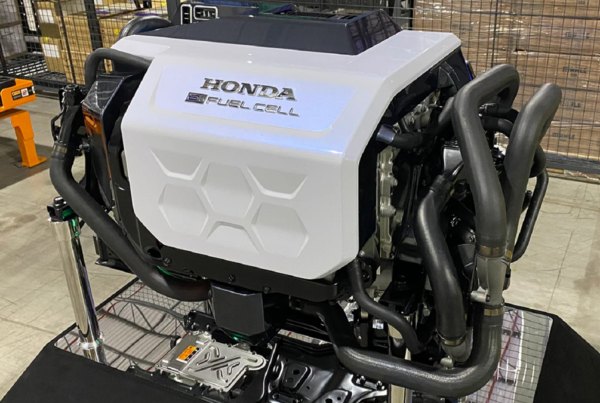
QUT has continued its investment in clean and green energy in Queensland by renewing its International Cooperation Agreement with the University of Tokyo (UTokyo) to develop joint venture projects and facilitate joint academic and scientific activities.
The agreement was signed by QUT Vice-Chancellor, Professor Margaret Sheil and the Queensland Hydrogen Envoy in Japan, Professor Masakazu Sugiyama, director of the Renewable Fuel Global Network at the UTokyo Research Center for Advanced Science and Technology (RCAST).
Collaborations will continue to focus on the development of renewable energy and provision of next generation fuels to meet future global energy needs.
QUT Vice-Chancellor, Professor Margaret Sheil said she was excited to continue collaborations with UTokyo to further research that had a real-world impact across the globe.
“Research into renewable energy and fuels of the future such as hydrogen will enable us to move further towards establishing a high-value Queensland hydrogen export industry,” Professor Sheil said.
 Joining Professor Sugiyama for the official signing, Queensland Trade and Investment Commissioner for Japan, and special advisor to the Japan Chamber of Commerce and Industry (Brisbane), Tak Adachi was also instrumental to agreements with Japan, one of Queensland’s largest export markets since 2004.
Joining Professor Sugiyama for the official signing, Queensland Trade and Investment Commissioner for Japan, and special advisor to the Japan Chamber of Commerce and Industry (Brisbane), Tak Adachi was also instrumental to agreements with Japan, one of Queensland’s largest export markets since 2004.
Queensland Government advisor on hydrogen, Professor Ian Mackinnon leads the QUT Centre for Clean Energy Technologies and said the commitment aligned with Queensland Government objectives in the Hydrogen Industry Strategy and the broader energy strategies of the Queensland Government.
“Japan has been at the strategic forefront of energy transformation for more than a decade,” Professor Mackinnon said.
“It has a long-term view of what its country needs and what is needed globally to shift to new economy with different energy sources and lower emissions.”
Professor Mackinnon said QUT-UTokyo collaborations had already resulted in a $9.1 million project to develop a hybrid renewable energy hydrogen production pilot plant at Redlands in Queensland.
QUT also hosted Professor Sugiyama to witness the landmark first export of hydrogen fuel in the form of methylcyclohexane (MCH) from Australia to Japan in 2019.
This Queensland-first production and export of water-derived “green hydrogen” was a proof of concept that used proprietary technology owned by JXTG, Japan’s largest petroleum conglomerate now known as ENEOS, and QUT solar power facilities.
This ENEOS project is separate to, but aligned with, the Australian Renewable Energy Agency (ARENA) project at Redlands and with research projects undertaken by QUT researchers in renewable energy production, storage, and use.
Subsequent scale-up of the process to develop transportable green hydrogen-rich fuels such as MCH continues in Queensland with Japanese and Australian companies.
Other projects in clean energy are facilitated by matching industry commitments through Federal and State government funding schemes such as with the Cooperative Research Centres and Advance Queensland programs.
Renewal of QUT-UTokyo commitment coincides with the Queensland Government-sponsored H2Q Hydrogen Connect Summit held in Brisbane this week.
The summit aims to accelerate hydrogen adoption and the development of clean energy solutions to deliver new jobs, regional prosperity and the decarbonisation of our industries and communities.
Read the most up to date Fuel Cell and Hydrogen Industry news at FuelCellsWorks




